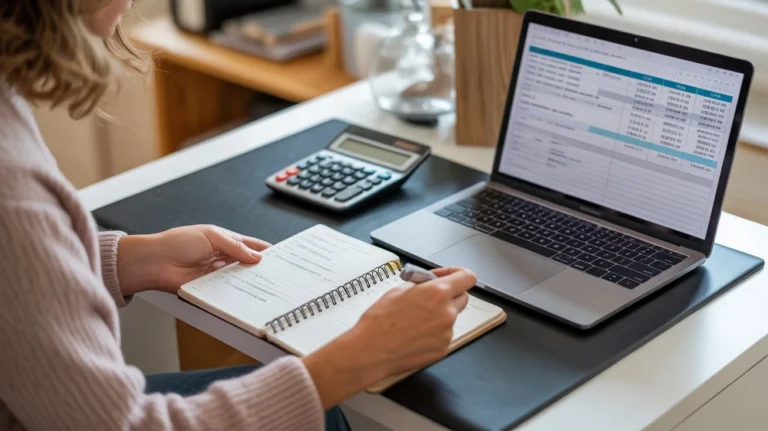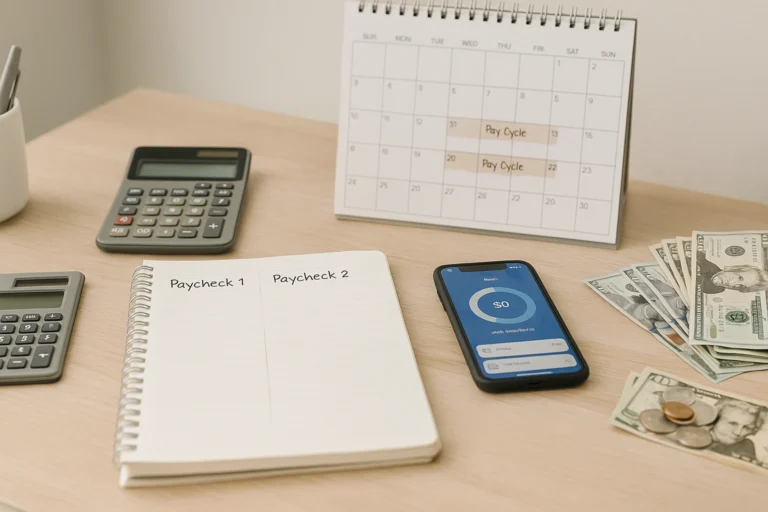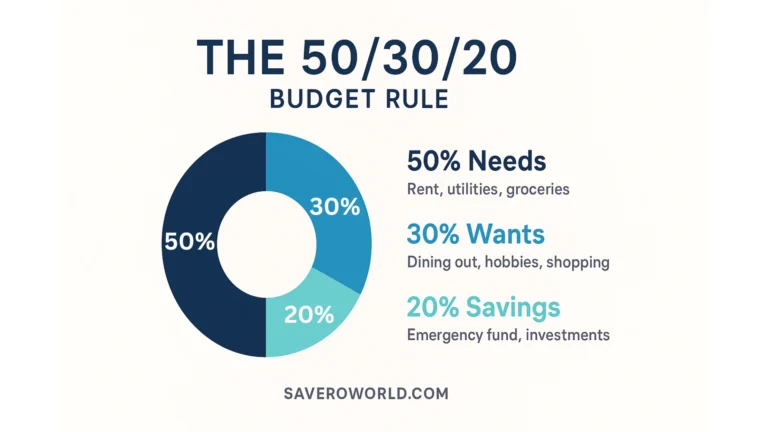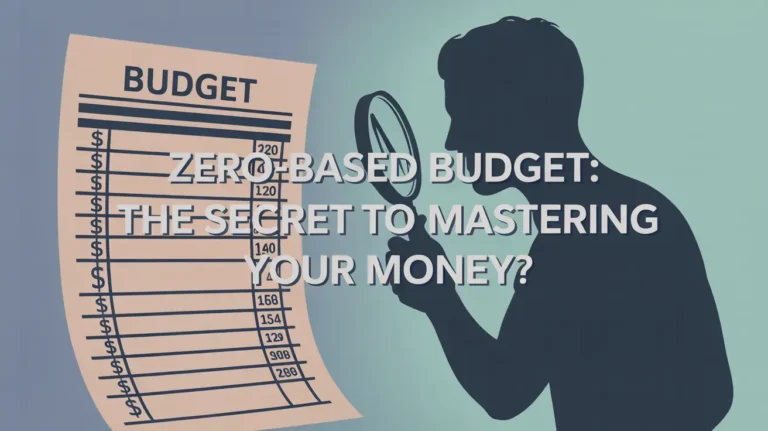The Half Payment Budget Method: A Simple Strategy to Master Your Finances
Do you ever feel overwhelmed by big bills like rent, insurance, or utilities that seem to hit your bank account all at once? You’re not alone. The good news is, there’s a smarter, less stressful way to handle these expenses—the half payment budget method.
This budgeting technique is simple but powerful. It works especially well for people who are paid biweekly, but anyone can benefit from it.
In this guide, you’ll learn:
- What the half payment method is
- How to set it up step-by-step
- Why it helps reduce stress and improve savings
- Pro tips to make it even more effective
Let’s dive into how this strategy can help you take control of your money—without needing to earn more.
Related read: 15 Genius Budgeting Hacks
What Is the Half Payment Budget Method?
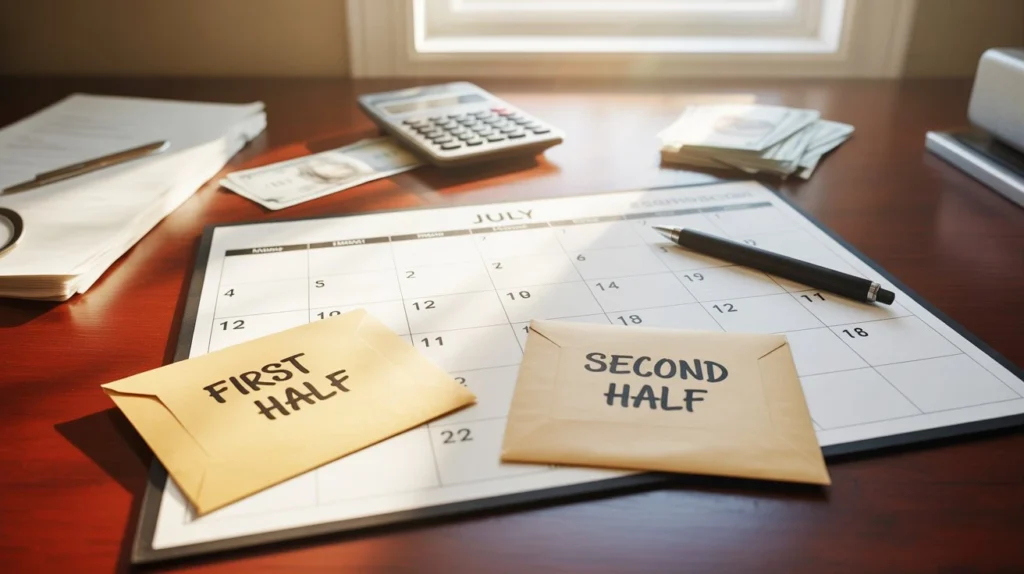
The half payment budget method involves splitting large monthly bills into two equal parts and setting aside half of the amount from each pay check. Instead of scrambling to cover $1,200 rent at the end of the month, you save $600 from each pay check. When the due date arrives, the full amount is ready—stress-free.
This method works beautifully for:
- Rent or mortgage payments
- Utilities (electricity, gas, water)
- Internet and phone bills
- Insurance premiums
- Car payments
Who Is It Best For?
While anyone can use it, this method is especially useful if:
- You get paid biweekly or weekly.
- You live pay check to pay check.
- You often feel short when big bills are due.
Why the Half Payment Budget Method Works
Many people budget by the month, but that doesn’t always match up with how money comes in. If you’re paid every two weeks, you might find it hard to sync paydays with due dates.
This method helps by:
- Spreading out costs evenly
- Preventing last-minute bill stress
- Creating a buffer between income and expenses
- Encouraging intentional saving
It’s a mindset shift—from reactive to proactive budgeting.
How to Set Up the Half Payment Budget Method
Step 1: List Your Large Monthly Bills
Make a list of bills that are over $100 and due monthly:
- Rent: $1,200 (due 1st)
- Utilities: $300 (due 10th)
- Car insurance: $180 (due 15th)
Step 2: Divide Each Bill in Half
Rent = $600 per pay check
Utilities = $150 per pay check
Insurance = $90 per pay check
Step 3: Align With Your Pay checks
Suppose you get paid on the 5th and 20th:
- Set aside half from each check.
- Use a sinking fund (a dedicated savings category) or a separate account to store this money.
Step 4: Automate Transfers
Use your bank’s automation tools to transfer the exact amount into your “bills” account the day you’re paid. This avoids the temptation to spend it elsewhere.
Step 5: Pay the Full Amount on Due Date
When the bill arrives, pay it in full using the saved amount. Easy.
Real-Life Example: Budgeting Rent
Let’s say your rent is $1,200 and you get paid biweekly. Rather than scrambling to come up with $1,200 from one pay check, you set aside $600 from two checks. By rent day, you’re covered—no stress, no overdraft.
Pro Tips to Make the Half Payment Method Even Better
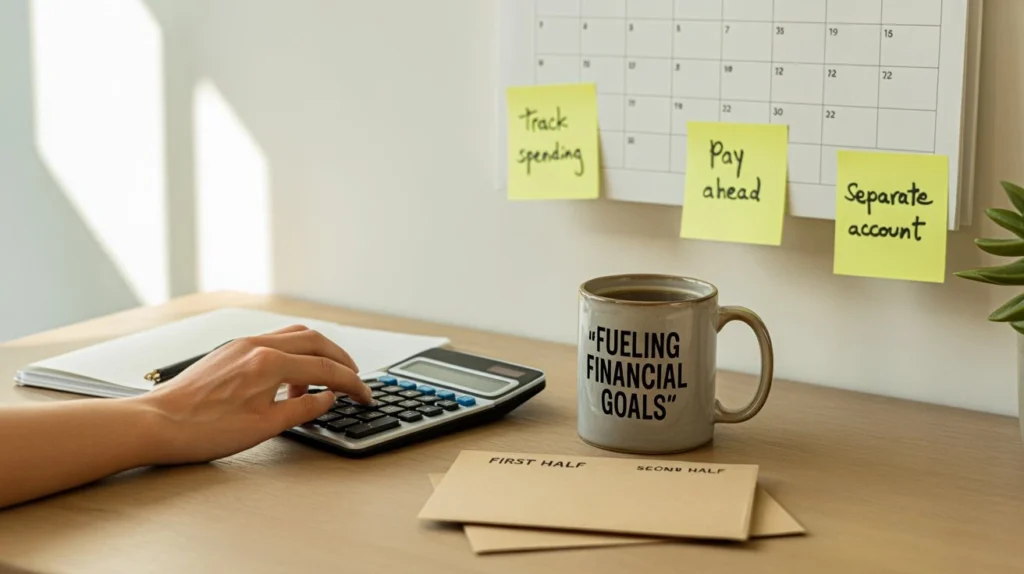
1. Use a Separate Bills Account
Create a separate checking or savings account just for holding bill money. It keeps your funds organized and untouched.
2. Combine With a Biweekly Budget
Pair this method with a biweekly budgeting strategy to make even smarter money decisions. Learn how in our full post on budgeting biweekly income.
3. Track It All in a Budget Planner
Use a printable planner or budgeting app like YNAB to track your half-payments. Seeing your progress builds motivation.
4. Prepare for 3-Paycheck Months
In some months, you might receive three paychecks. Use the extra one to get ahead on bills, build an emergency fund, or pay down debt.
Common Mistakes to Avoid
- Not treating saved amounts as “spent” money – If you dip into that money before the bill is due, the method fails.
- Forgetting to adjust when bills change – Recalculate whenever your rent, utilities, or premiums go up.
- Not aligning paydays with due dates – Consider adjusting the due dates of your bills if possible.
Final Thoughts: A Simple Hack With Big Benefits
You don’t need a higher income to feel financially stable—you just need a better system. The half payment budget method turns large, overwhelming bills into manageable chunks.
It’s a powerful way to:
- Reduce money stress
- Build savings discipline
- Stay ahead of bills
Start with one or two bills and test it for a month. You’ll be amazed at how much easier managing money feels.



